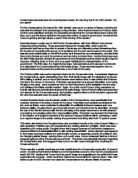William Harvey
William Harvey What would it have been like to be a scientist in the time of Shakespeare? Best seats at the Globe Theatre and invitations to command performances alongside the King and Queen? Why not, if you are married to the daughter of the Queen's physician? Better yet if you have been appointed physician to the King himself. By all accounts, William Harvey led a charmed life. Harvey, oldest of seven children, was born in 1578 in Kent, England, at the halfway point of the reign of Queen Elizabeth I. He was a voracious student, earning his bachelor's degree in 1597 from Cambridge University. He continued his schooling at the University of Padua, the foremost medical school of the time, where he studied under the esteemed scientist and surgeon, Hieronymus Fabricius. Fabricius, an ardent anatomist, had observed the one-way valves in veins, but had not figured out exactly what their role was. The popular belief of the day held that a sort of pulsing action of the arteries circulated blood. Harvey returned to England in 1602 and married Elizabeth Browne, who was the daughter of one of the Queen's physicians. Harvey himself obtained a fellowship at the Royal College of Physicians. In 1618 he was appointed as a physician to the court of James I. His research into the circulatory system and his other lines of inquiry were generously sponsored and encouraged by James I's
William Shakespeare.
English dramatist and poet. His works, translated and performed throughout the world, have made him the most celebrated and most quoted of English writers. He was born in Stratford-upon-Avon, the son of a glover, and in 1582 he married Anne Hathaway, who bore him three children. He is known to have been active in the London theatre by 1592, but nothing is recorded of his earlier education or working life. As an actor and playwright he worked for the Lord Chamberlain's Men (known from 1603 as the King's Men), the leading company which from 1599 occupied the Globe Theatre, of which Shakespeare was a shareholder. While the plague closed the London theatres (1592-4), he published two narrative poems, the erotic Venus and Adonis and The Rape of Lucrece. Also probably written in this period was his very fine sequence of 154 sonnets (published 1609), some of them addressed to a mysterious 'Dark Lady' and to a beautiful young man. Shakespeare is known to be the author or co-author of thirty-eight surviving plays. Dates of composition and first performance cannot be determined exactly, but the accepted approximate dates fall into four phases of Shakespeare's dramatic career. During the first, from some time in the late 1580s to 1594, Shakespeare experimented with different kinds of comedy in Love's Labour's Lost, The Comedy of Errors, Two Gentlemen of Verona, and The Taming of the
With What Success did Wolsey pursue his aims in foreign policy
With What Success did Wolsey pursue his aims in foreign policy? In the period that Wolsey was Henry's top minister, Europe was a very hostile environment where each nation was continually enforcing her sovereignty and supremacy over other nations in the ruthless power struggle that was foreign policy. Under the rule of Henry IIV England had steered clear of conflicts with other nations, as Henry was happy with his annual pension from France. However, after Henry VIII accession to the throne England's Foreign policy became much more important part of the King and ministers role. Henry was not happy with the isolated state that England lay in outside of Europe and sought to boost the minimal influence he had. Therefore the Kings chief minister Cardinal Wolsey had his work cut out for him to improve relations in Europe especially with France who England had very bad history of conflict with and also with Charles who was a very powerful and influential ruler in Europe at this time. There were a large number of events that Wolsey dealt with, in some cases successfully in others not so much, In balancing up Wolsey's successes and failures it should be possible to decipher whether Wolsey had met his aims in foreign policy. One of Wolsey's main aims in foreign policy was to try and avoid war especially with France, as England at this time was no match for the French. In the early
William the Conqueror
Matt Dmytry & Dan DeVita Blk. A Dec. 17/01 William the Conqueror, born in 1028, was an extremely important person in his day and age. To this very day he is regarded as a very great military leader and an extremely influential leader of his people. At a very young age, of 18, he was officially named Duke of Normandy, due to his father's untimely death. He accomplished a great deal of important things, he conquered England in the Battle of Hastings, he surveyed how much land his people owned in a collection called the Domesday Book, and he had a set of laws that he ruled England with. The Battle of Hastings took place in 1066. There isn't much known about the actual battle itself but what is known is that it was a day that would be remembered for centuries to come. This Battle was the victory that started William's accent to becoming the King of England. Although, he wasn't the King right after the Battle of Hastings it is the most significant Battle that lead him to becoming the King. William wasn't officially named the King of England until December 25, 1066. One of his first acts as King was to build a fortress in London, a tactic he used in several towns. This tower became famous, and it still stands today. The tower is called: The Tower of London, this tower still stands today. After conquering England, William decided to make an inventory of his new kingdom called




















